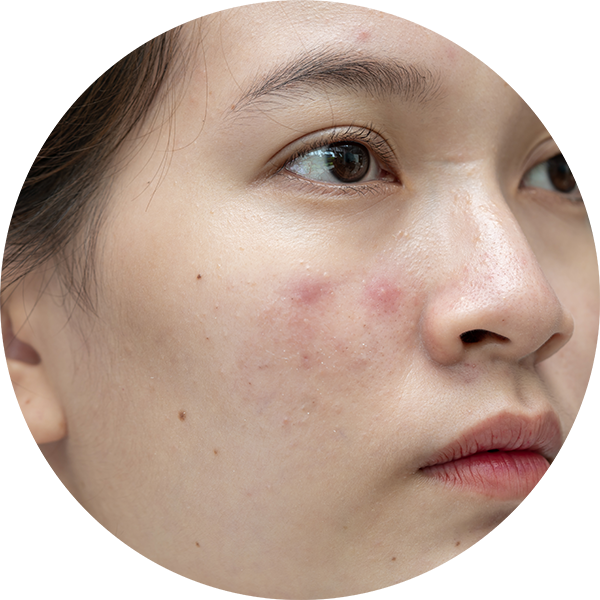
Ayurveda offers a range of treatments and approaches to address various skin disorders. The approach focuses on understanding the individual’s constitution (dosha), identifying the root cause of the skin issue, and balancing the body to promote skin health. Here are some common skin disorders and Ayurvedic treatments for them:
- Eczema (Vicharchika):
- Dietary Modifications: Avoid triggering foods like spicy, sour, and fermented items. Opt for a diet that includes cooling foods like leafy greens, cucumbers, and fresh fruits.
- Herbal Applications: Topical application of cooling herbs like neem, sandalwood, and aloe vera can soothe inflammation and irritation.
- Gentle Cleansing: Use mild, herbal cleansers to keep the skin clean without causing excessive dryness.
- Psoriasis (Sidhma Kushta):
- Herbal Oils: Applying herbal oils such as coconut oil or neem oil can help soften plaques and reduce scaling.
- Herbal Bathing: Taking baths with medicated herbal water (decoctions) can have a soothing effect on the skin.
- Internal Herbal Remedies: Ayurvedic herbs like guggul and turmeric may be used to address underlying inflammation.
- Acne (Yauvan Pidika):
- Balancing Digestion: Addressing digestion and eliminating toxins can improve skin health. Triphala or other digestive herbs may be recommended.
- Herbal Cleansers: Using cleansers containing herbs like neem, tulsi (holy basil), and turmeric can help control bacterial growth.
- Internal Cleansing: Periodic detoxification with the guidance of an Ayurvedic practitioner may be beneficial.
- Rosacea (Prameha Kushta):
- Cooling Diet: Avoid spicy foods, alcohol, and caffeine. Emphasize cooling foods like cucumber, coconut, and leafy greens.
- Herbal Masks: Applying a cooling mask made from sandalwood, rose, and aloe vera can help reduce redness and inflammation.
- Stress Management: Practicing stress-reduction techniques can help manage rosacea flare-ups.
- Urticaria (Sheetapitta):
- Avoid Allergens: Identify and avoid triggers that cause hives or allergic reactions.
- Cooling Herbs: Herbs like licorice, mint, and fennel can help reduce itching and inflammation.
- Internal Detoxification: Under the guidance of an Ayurvedic practitioner, detoxification treatments may be considered.
- Dry Skin (Vataja Tvak Roga):
- Hydration: Keep the body hydrated by drinking warm water and using natural moisturizers like sesame oil or ghee on the skin.
- Nourishing Diet: Include healthy fats, such as avocados, nuts, and seeds, in your diet to support skin hydration.
- Avoid Harsh Soaps: Use mild, natural cleansers that don’t strip the skin of its natural oils.
It’s important to note that Ayurvedic treatments are personalized based on an individual’s constitution, imbalances, and the specific skin disorder they are experiencing. Consulting with a qualified Ayurvedic practitioner is recommended to receive tailored guidance and treatment. Additionally, if you have a medical condition, it’s advisable to consult with your healthcare provider before making any significant changes to your skincare routine or treatment plan.
